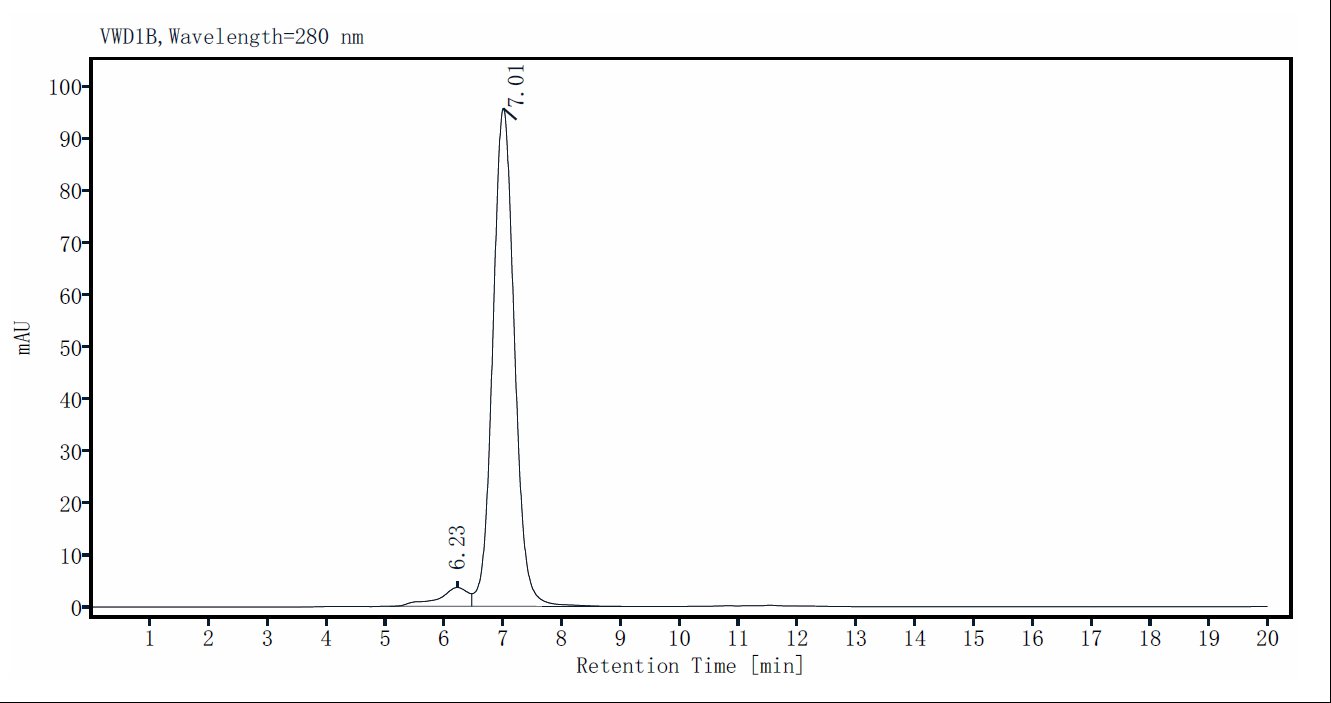110-140kDa (Reducing)
Reconstitute at 0.1-1 mg/ml according to the size in ultrapure water after rapid centrifugation.
Su S L. et al. (1995) Alternatively spliced variants of prostate-specific membrane antigen RNA: ratio of expression as a potential measurement of progression. Cancer Res. 55: 1441-1443.
O'Keefe D S. et al. (1998) Mapping, genomic organization and promoter analysis of the human prostate-specific membrane antigen gene. Biochim Biophys Acta. 1443: 113-127.
Prostate-Specific Membrane Antigen (PSMA) is a transmembrane protein that is consistently found in prostatic tissues. Its expression is notably elevated in various malignancies, with prostate cancer exhibiting particularly high levels. In nearly all cases of prostate adenocarcinoma, PSMA is expressed in the majority of both primary and metastatic lesions.
Immunohistochemical analysis has shown that PSMA expression intensifies in patients with dedifferentiated, metastatic, or hormone-refractory tumors. The level of PSMA expression has been correlated with the prognosis of the disease, offering significant predictive value for patient outcomes.
1μg (R: reducing condition, N: non-reducing condition).

The purity of PSMA/FOLH1 Fc Chimera Protein, Human is more than 95% determined by SEC-HPLC.
Immobilized PSMA/FOLH1 Fc Chimera Protein, Human (Cat. No. UA011064) at 2.0μg/mL (100μL/well) can bind Biotinylated Anti-Human PSMA (Rosopatamab) with EC50 of 1.59-2.42ng/mL.